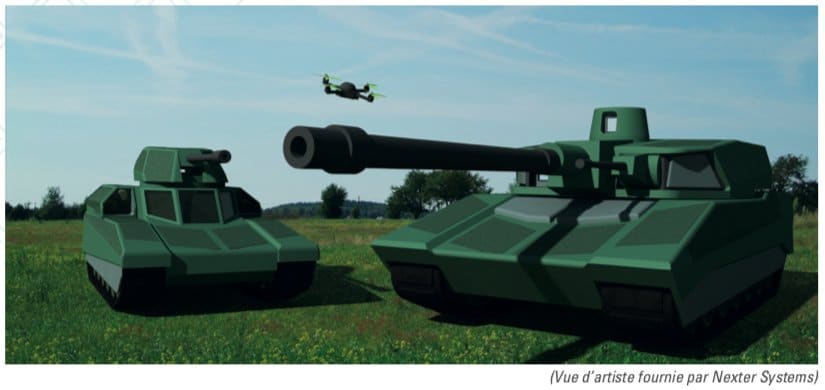The subject of virulent criticism across the Rhine, the Franco-German industrial sharing around the battle tank of the future – the Main Ground Combat Vehicle (MGCS) – is being called into question by certain German parliamentarians who do not hesitate to put pressure on Berlin to stop any negotiations with France. A deep source of concern for the French government, the endangerment of this program would directly impact the viability of the Future Air Combat System (FCAS), a project essential to strengthening European defense.
The Franco-German political agreement on the FCAS and the MGCS provided for a fair distribution for industrialists on both sides of the Rhine: for France, leadership on the air program – with Dassault as prime contractor for the implementation of New generation fighter (NGF) – and for Germany, control of the land program via the company KNDS, the latter bringing together the French Nexter and the German KMW. The common base of this sharing was therefore based on the idea of a balanced distribution. However, it is clear that the implementation of this agreement is proving more than difficult, the roots of this never-ending imbroglio being to be found on the German side.
In fact, the proposal from the Franco-German authorities for a sharing of 50% for Nexter, 25% for KMW and 25% for Rheinmetall was refused by the latter. From then on, leading active lobbying within the Bundestag, the Rhineland industrialist managed to convince some of the German deputies that KNDS did not sufficiently support the German share within the MGCS. The latter then ordered the German government to “ cease all negotiations with France regarding future joint programs, in air and land, as long as Rheinmetall does not acquire a majority stake in the capital of KNDS ". In view of the facts, it seems more than difficult to support such an assertion: not only does KNDS belong 50% to the industrial KMW but Rheinmetall is 29% owned by American pension funds, the main shareholders of the Düsseldorf group. We are therefore talking about an industrial conglomerate that is not as “German” as it claims to be.
In addition, the offensive launched by Rheinmetall to take control of KNDS has considerably complicated the context. This approach reflects the very “capital-intensive” intentions of the industrialist who, through this action, aspires above all to create value for its shareholders while strengthening its positioning within the MGCS to thus move up the value chain of the manufacturing sector. German Defense. This would undoubtedly be an operation of which he would be the main beneficiary – if not the only one – because he would manage to take control of the Franco-German company KNDS, to the detriment of French interests and in contempt of the Franco-German balance. .
Logically, the French State responded negatively to Rheinmetall's capitalistic ambitions and the Minister of the Armed Forces, Florence Parly, clarified that it was therefore inconceivable " to subordinate the smooth running of a program such as the battle tank of the future to private shareholder and property interests ».

Thus, the fire lit by Rheinmetall is not about to go out and risks impacting the structural balance of the FCAS. In a information report on European Defense from the French Parliament, senators Ronan Le Gleut (LR) and Hélène Conway-Mouret (PS) judged “ necessary to alert all those involved in this matter today of the risks that this approach poses to these two projects essential to strengthening European defense » while emphasizing that “ this logic of industrial conquest is not tenable in such a competitive context, and where the technological and industrial challenges will already be considerable ».
By choosing to proceed with industrial sharing between programs and not within a single program, France and Germany have implemented a structural balance which today turns out to be very unstable, threatening de facto a priority axis of French Defense industrial policy, namely Franco-German cooperation.
Axel Trinquier – Specialist in European defense issues
